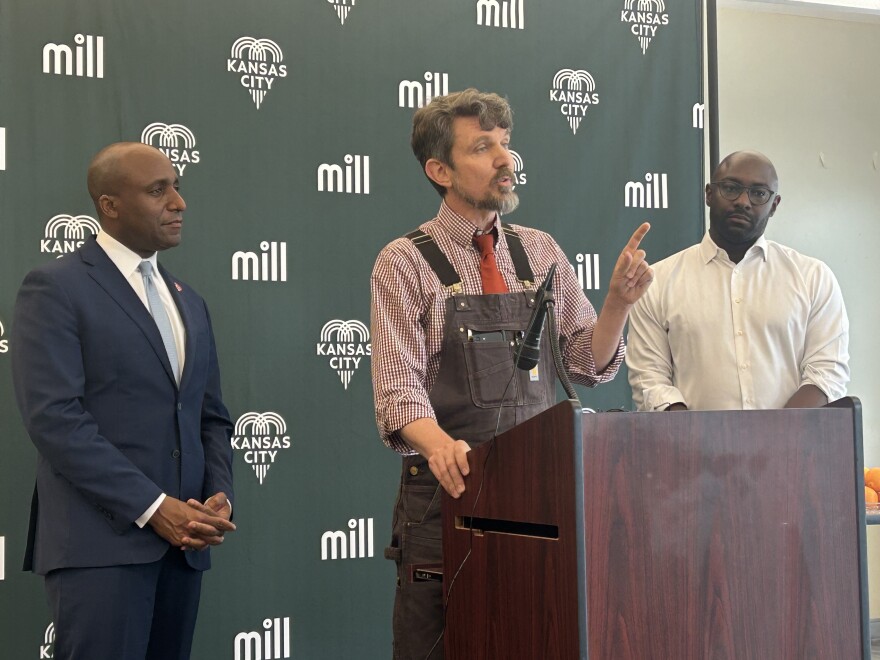In the Southeast Community Center at 4201 E 63rd Street, a crowd of city officials and environmental enthusiasts gather around a small white bin equipped with cutting-edge technology meant to cut back on the city's food waste that ends of in landfills while also helping local growers.
Kansas City Mayor Quinton Lucas dumps the peel of a tangerine into the bin, a symbolic move officially announcing a partnership between the city and the food recycling company Mill. Mill, based in San Bruno, California, is providing the high-tech bins that will break down the food scraps to make them compost ready.
A total of 50 of the food recycling bins will be distributed to community centers, municipal buildings, and fire stations around Kansas City.
Head of Policy with Mill, Lou Pieh, said the food recycling bin is an easy-to-use appliance.
“It dries and grinds food scraps, removing 80% of the moisture content,” he said. “When you remove water from food, it becomes shelf stable. This device can handle about 40 pounds of wet food scraps before you need to empty it.”

Once a bin is full, staff at the facility will dump the food waste into a larger bin, which will be picked up by local composting companies like KC Can Compost and Missouri Organic Recycling. and used for gardens and farms.
Pieh says the device can also measure garbage that is being converted into compost, an innovation that is useful as the city looks to monitor how much gets dumped into landfills.
Mayor Lucas said Kansas City is on course to need a new landfill within the next ten years, and food waste is one of the biggest reasons why. Recent data reveals that the city dumps some 400 thousand tons of food waste into landfills every year.
Chief Environmental Officer for Kansas City, Jensen Adams, said the partnership is an intentional and valuable way to redirect food waste.
“We choose what we're going to do with (food waste), so that it continues in a closed loop, a circular economy, rather than just ending up in the landfill,” Adams said.
Kansas Citians have access to the recycling food bins at locations around the city Wednesday, July 16.
“We’re making strategic investments in Kansas City’s future long term,” Lucas said. “We want to make sure we are innovating with our city as a cleaner, healthier, and more sustainable place.”





